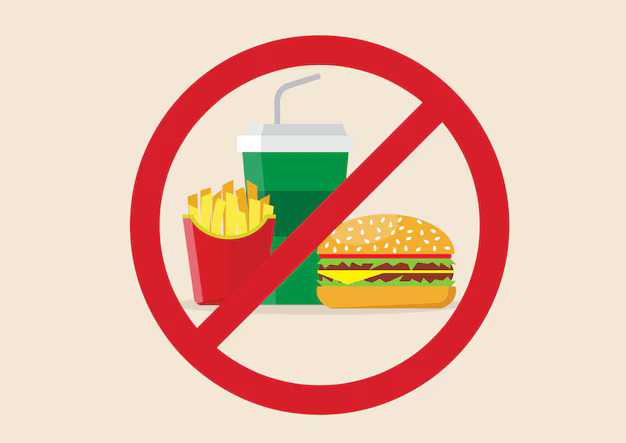Understanding kidney disease protein
Let's discuss kidney disease protein topic in a manner that won't disturb your sleep. It's common knowledge for those with kidney problems to monitor their kidney disease protein intake. What recommendations have you come across? Can you explain the rationale behind that statement? Let's break it down in the following paragraphs!

What is the function of your kidneys?
Your kidneys function as a personal cleaning team for your body. Their role is to filter waste, eliminate excess fluids, and maintain a healthy blood plasma. Think of them as the unremarkable heroes working 24/7 to make things right. When their functioning fails, the condition can quickly worsen.
What is the mechanism by which kidney disease protein comes into play?
Protein facilitates the development of muscles, tissue repair, and proper bodily function. Nevertheless, the process of digestion leads to the production of waste products that are filtered by your kidneys. Your kidneys may not be able to handle the surplus waste, which only makes things worse.
Is it necessary to completely remove protein to avoid kidney disease protein?
Nope! Regardless of the amount and type of protein you consume, it is still necessary. Why? If you eat too much, your kidneys will be overloaded, and if you don't eat enough, then your muscles will become weak and lose function. Finding the right balance is essential.

What is the ideal amount of protein to consume to avoid kidney disease protein?
The severity of your kidney disease is a crucial factor in this. Early on, you may not need to reduce your intake too much. In case of deteriorating conditions, your physician may suggest protein restriction in CKD with a lower protein content. Those with kidney disease are typically recommended to consume protein at a rate of roughly 0.6 to 0.8 grams per kilogram of body weight per day. Dialysis can result in the loss of certain essential nutrients, which means that additional protein intake may be inevitable.
Which protein is most valuable?
Not all protein is equal! There are two main types: low-quality and high-quality protein. Examples of high-quality proteins include:
- Eggs
- Chicken (skinless)
- Fish
- Dairy (in moderation)
- Lean beef
- Tofu
- Plant-based options like quinoa
Lower-quality protein can make your kidneys more resistant and generate more waste. Examples include:
- Bacon, sausages, and hot dogs (processed meat products)
- Red meats (in excess)
- Fast food meats
How to eat protein when suffering from kidney disease protein?
- Controlling portion sizes is important to maintain a consistent outcome.
- Balance it out: Eat more fruits, vegetables, and whole grains - especially proteins.
- Protein restriction in CKD is crucial in maintaining kidney function.
- Phosphorus and Potassium are present in some foods like dairy and beans, which can be detrimental if used in large amounts as they may cause kidney disease protein.
- A dietitian can assist you in adjusting your diet to ensure adequate kidney disease protein intake without overtaxing your kidneys.
What If You're on Dialysis?
The elimination of protein from blood during dialysis results in increased protein requirements. A recommendation from your doctor could be to consume between 1.2 and 1.5 grams of protein per kilogram daily. High protein and kidney disease are closely linked, requiring careful intake monitoring. High-quality protein assumes importance here.
Will a protein restriction in CKD delay the onset of dialysis?
In some cases, yes! Providing a well-balanced diet and incorporating protein restriction in CKD may slow the progression of kidney disease, but it can only be done so wisely and with care. Certain patients are given supplements, which are dietary supplements that limit protein and prevent malnutrition. However, kidney disease and protein supplements have been demonstrated to have a relationship and one must be careful of the amount he/she is consuming daily.
Enhancing Renal Health via Herbs and Lifestyle Changes to avoid kidney disease protein
Natural remedies for kidney disease that promote good health are available in Ayurveda. Discover some effortless lifestyle modifications and enlightening remedies with these herbs for optimal results! Ayurvedic herbs for kidney disease have been a traditional remedy in Ayurveda for kidney health since ancient times. These are some of the top-rated ones:
- A potent diuretic, Punarnava (Boerhavia diffusa) aids in the reduction of water retention and detoxification of the kidneys. It is an excellent Ayurvedic medicine for CKD.
- Gokshura (Tribulus terrestris) is a beneficial herb for the urinary tract, aiding kidney function and eliminating toxins.
- The use of Varun (Crataeva nurvala) is beneficial in preventing kidney stone formation and maintaining good renal health.
- The natural cleansing agent, Palash (Butea monosperma), helps to eliminate waste from the kidneys.
- Tulsi is known for its anti-inflammatory and detoxifying properties, which are beneficial for kidney function and immunity. It is widely used in the Ayurvedic treatment for CKD or CKD treatment in Ayurveda.

Improved Kidney Function can be achieved through lifestyle changes:
- Stay Hydrated: Drinking plenty of water helps to flush out toxins and prevents kidney stones. Maintain a daily water intake of at least 8-10 glasses, but avoid excessive amounts if you have kidney disease. It is a great natural remedy for kidney disease.
- Eat a Kidney-Friendly Diet: Cut back on processed foods, excessive salt, and sugary drinks. Ensure that you eat fresh cucumbers, carrots, and beets.
- Practice Yoga & Meditation: Improved circulation and kidney function are two key benefits of practicing Bhujangasana (Cobra Pose) and Setu Bandhasano (Bridge Pose).
- Herbal Teas for Kidney Detox: Herbal teas, including Dandelion root tea, Coriander tea, and Nettle leaf tea, can promote kidney health and improve function and may help avoid kidney disease protein.
- There have been studies that have demonstrated a positive correlation between kidney disease and protein supplements. Consume supplements under supervision.
Final Thoughts
Helping with kidney function doesn't have to be difficult. Increasing the natural state of your kidneys is possible with Ayurvedic herbs, adequate hydration, a proper diet, and wise choices in life. The functioning of your kidneys is dependent on receiving the care it deserves. Understanding the nexus between kidney disease and protein supplements and following the appropriate protein restriction in CKD can support a better quality of life. Understanding the relationship between high protein and kidney disease is crucial for making the right dietary choices and ensuring kidney health.







